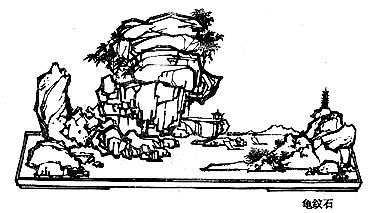詩
經
Shi Jing 
 – The Book of Odes
– The Book of Odes
The oldest collection of Chinese poetry, more than three hundred songs, odes and hymns. Tr. Legge (en) and Granet (fr, incomplete).
Shijing I. 10. (123)
There is a solitary russet pear tree,
Growing on the left of the way.
That princely man there !
He might be willing to come to me.
In the centre of my heart I love him,
[But] how shall I supply him with drink and food ?
There is a solitary russet pear tree,
Growing where the way makes a compass.
That princely man there !
He might be willing to come and ramble [with me].
In the centre of my heart I love him,
[But] how shall I supply him with drink and food ?
Legge 123
Il est un sorbier solitaire
qui pousse à gauche du chemin !
Ô Seigneur, ô toi que voilà,
daigne t'en venir avec moi !
Toi, que du fond de mon cœur j'aime,
toi, ne veux-tu boire et manger ?
Il est un sorbier solitaire
qui pousse au tournant du chemin !
Ô Seigneur, ô toi que voilà,
daigne t'en venir promener !
Toi, que du fond de mon cœur j'aime,
toi, ne veux-tu boire et manger ?
Granet XXVI.

The Book of Odes – Shi Jing I. 10. (123) – Chinese on/off – Français/English
Alias Shijing, Shi Jing, Book of Odes, Book of Songs, Classic of Odes, Classic of
Poetry, Livre des Odes, Canon des Poèmes.
The Book of Odes, The Analects, Great Learning, Doctrine of the Mean, Three-characters book, The Book of Changes, The Way and its Power, 300 Tang Poems, The Art of War, Thirty-Six Strategies
Welcome, help, notes, introduction, table.
Index – Contact – Top
